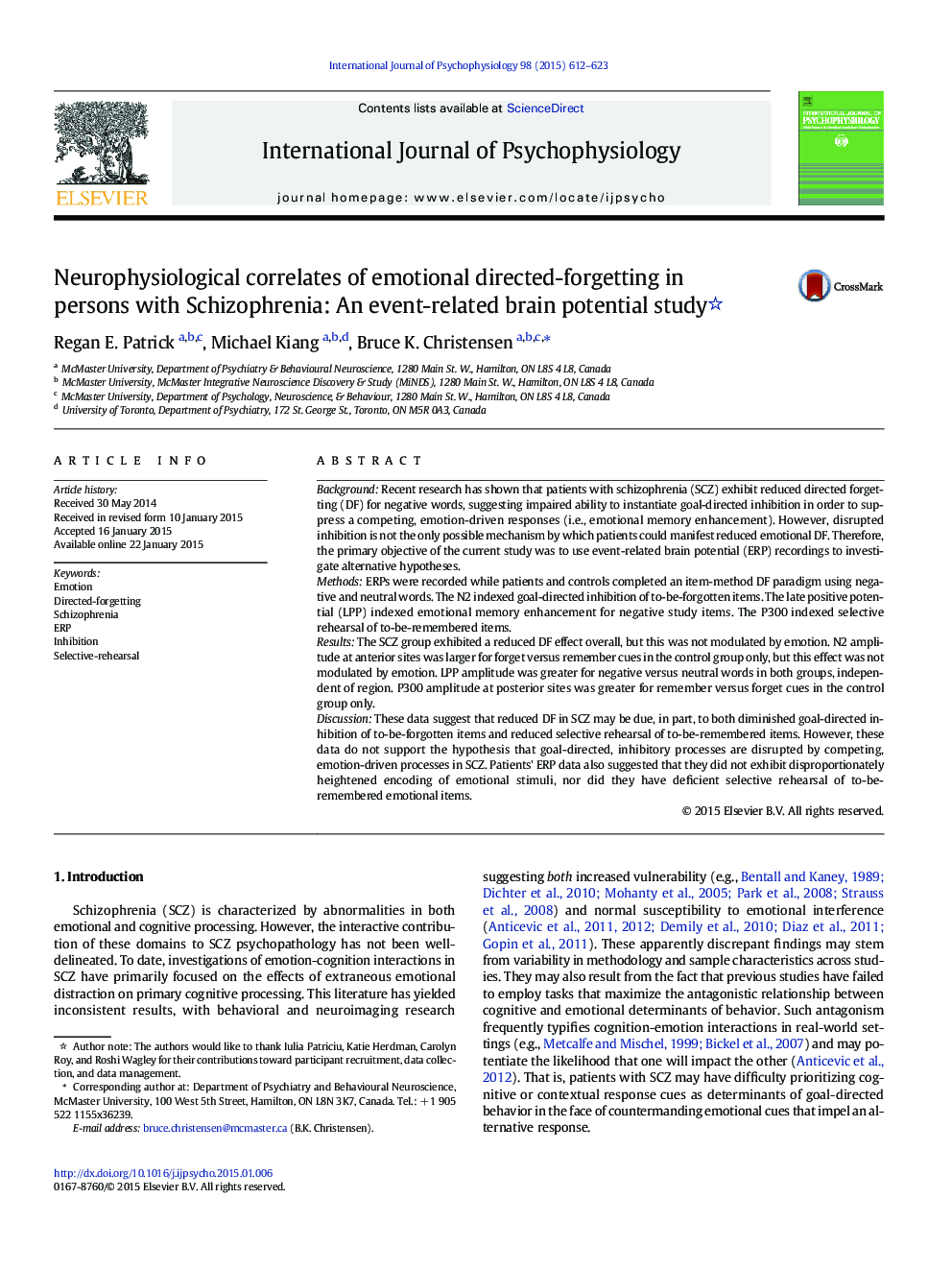| کد مقاله | کد نشریه | سال انتشار | مقاله انگلیسی | نسخه تمام متن |
|---|---|---|---|---|
| 930842 | 1474398 | 2015 | 12 صفحه PDF | دانلود رایگان |
• This study examines the neurophysiological correlates of emotional directed forgetting in patients with schizophrenia.
• This study seeks to adjudicate between alternative explanations for poorer emotional directed forgetting in patients with schizophrenia.
• This study contributes to a burgeoning literature examining dysregulated emotion-cognition antagonism in schizophrenia.
BackgroundRecent research has shown that patients with schizophrenia (SCZ) exhibit reduced directed forgetting (DF) for negative words, suggesting impaired ability to instantiate goal-directed inhibition in order to suppress a competing, emotion-driven responses (i.e., emotional memory enhancement). However, disrupted inhibition is not the only possible mechanism by which patients could manifest reduced emotional DF. Therefore, the primary objective of the current study was to use event-related brain potential (ERP) recordings to investigate alternative hypotheses.MethodsERPs were recorded while patients and controls completed an item-method DF paradigm using negative and neutral words. The N2 indexed goal-directed inhibition of to-be-forgotten items. The late positive potential (LPP) indexed emotional memory enhancement for negative study items. The P300 indexed selective rehearsal of to-be-remembered items.ResultsThe SCZ group exhibited a reduced DF effect overall, but this was not modulated by emotion. N2 amplitude at anterior sites was larger for forget versus remember cues in the control group only, but this effect was not modulated by emotion. LPP amplitude was greater for negative versus neutral words in both groups, independent of region. P300 amplitude at posterior sites was greater for remember versus forget cues in the control group only.DiscussionThese data suggest that reduced DF in SCZ may be due, in part, to both diminished goal-directed inhibition of to-be-forgotten items and reduced selective rehearsal of to-be-remembered items. However, these data do not support the hypothesis that goal-directed, inhibitory processes are disrupted by competing, emotion-driven processes in SCZ. Patients' ERP data also suggested that they did not exhibit disproportionately heightened encoding of emotional stimuli, nor did they have deficient selective rehearsal of to-be-remembered emotional items.
Journal: International Journal of Psychophysiology - Volume 98, Issue 3, Part 2, December 2015, Pages 612–623
